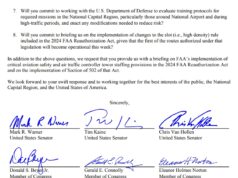SPONSORED CONTENT
Virginia transportation workers are an integral part of society. Without them, millions of people would be rendered unable to travel, and essential products would fail to reach people. Unfortunately, these essential employees are putting their lives on the line to perform their jobs.
A nearly decade-long study found that transportation workers are at a higher risk for cancer. The legal industry recognizes these drivers need somebody to protect them. As a result, attorneys are stepping up to help these drivers hold the transportation industry responsible.
Transportation Workers Have a Higher Incidence of Cancer
A 2012 study identified diesel engine fuel and exhaust as a carcinogen due to chemicals such as benzene, inorganic sulfates, and lead. Several studies found long-term term inhalation of these chemicals increased the risk of cancer.
Due to the nature of their jobs, transportation workers inhale these chemicals daily. These chemicals disproportionately impact transportation workers, including truck, bus, taxi, train, and other drivers that support our daily lives.
“When workers surrounded by asbestos insulation and other products inhale asbestos fibers, those fibers can lodge in their bodies and often cause deadly harm,” says New York railroad injury lawyer Christopher M. Murphy of Doran & Murphy, PLLC. “The aggressive cancer mesothelioma is almost always caused by asbestos exposure, but asbestos can also lead to other forms of malignant cancer and disease. Similarly, transportation workers exposed to diesel exhaust and other hazardous substances are at risk of developing a number of types of cancer.”
In South Korea, Gachon University College of Medicine explored the impact of breathing in these chemicals on transportation workers. From 2006 to 2015, they followed 600,000 transportation and non-transportation workers and monitored them for cancer.
Unfortunately, the road transportation workers displayed an increased incidence of cancer in comparison to the non-transportation group. Transportation workers have a higher risk of liver, lung, prostate, and digestive cancers.
Gachon University is not alone in their findings. Sixteen other studies, including several small groups with a narrower focus, found a clear correlation between cancer risk and long-term exposure to diesel exhaust.
The Drivers Right to Recover
Despite knowing about diesel exhaust dangers, the transportation industry has been slow to protect its workers. Transportation companies with this knowledge should be liable for their failure to act.
An employer should disclose the risks associated with the occupation to the potential employee. “With the information available through a multitude of studies, transportation companies should be aware of the harm posed by diesel engine exhaust,” Attorney Murphy says. “Many of these companies do not warn their employees of the potential dangers, and fail to install equipment on the vehicles that reduce exposure.”
Transportation Workers are Entitled to Damages
A worker could recover damages once they establish that the company was aware of the diesel exhaust’s dangers and failed to act. While no amount of money can compensate for the physical and emotional tolls caused by cancer, the worker can recover economic and non-economic damages.
An employee is eligible to recover economic damages for the financial losses that the cancer caused. Financial losses often include lost wages from missed work, early retirement, and medical expenses.. The worker can also be entitled to reimbursement for out-of-pocket costs, including medical and therapy treatment.
The Outcome for Transportation Employees
The risk of cancer to transportation employees is capable of being mitigated. The Gachon University study, like many others, has revealed the risks with diesel fuel and exhaust to employees in transportation about which companies likely already knew. When these companies fail to act, it is the employee’s right to hold them responsible.





![Rep. Don Beyer (D-VA08) on “reports of the devastating effects Donald Trump’s Project 2025 agenda would have on [Metro]”](https://bluevirginia.us/wp-content/uploads/2024/10/trumpmetro-238x178.jpg)





![Saturday News: “Trump’s latest tariff TACO probably won’t make your life more affordable”; “The Epstein Email Cache: 2,300 Messages, Many of Which Mention Trump”; “[MTG] questions if Trump is still the ‘America First’ president”; “Jim Ryan tells all: ‘What did the Governor know, when did he know it?’”](https://bluevirginia.us/wp-content/uploads/2025/11/montage1115-100x75.jpg)

